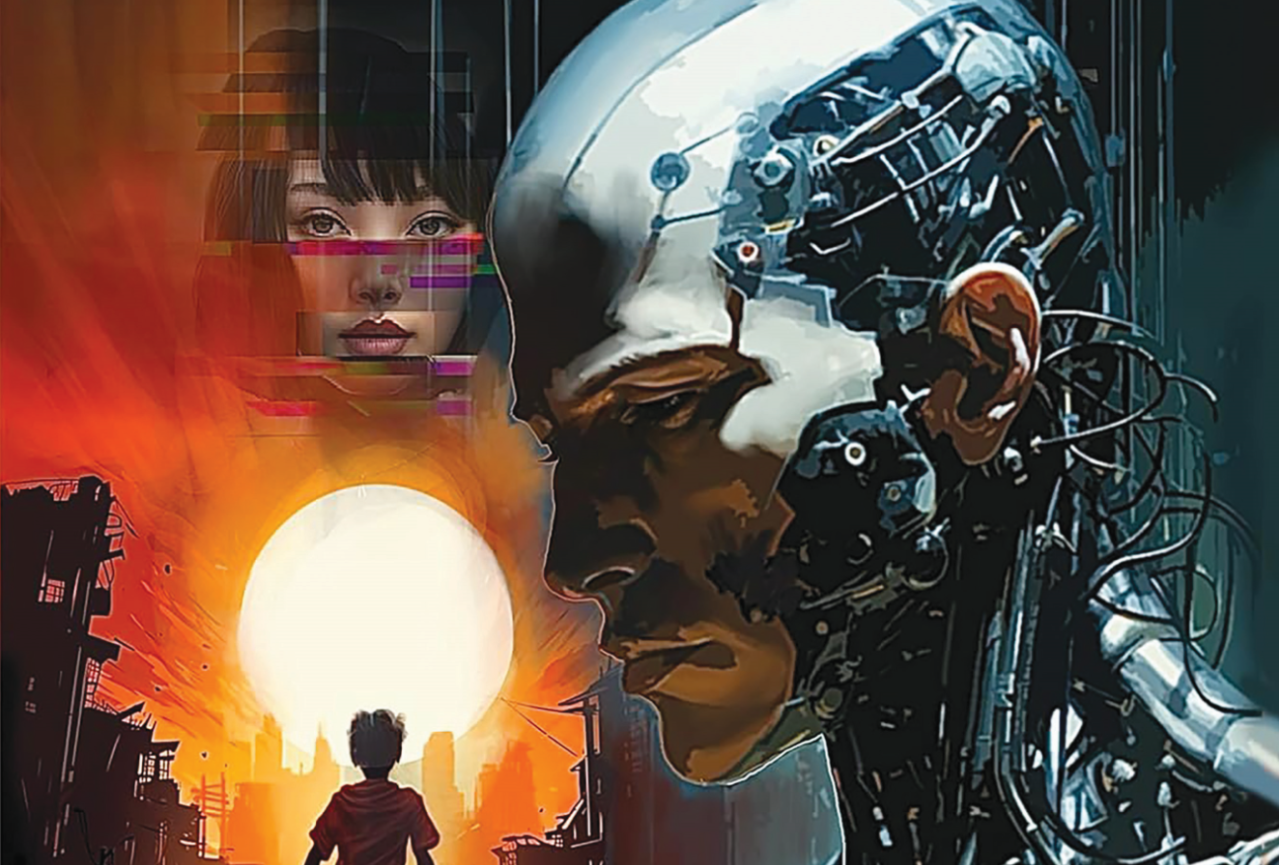Walter Turns to AI Fiction with Doppelganger

Noted sci-fi novelist and pioneering computer scientist Vernor Vinge wrote in a 1993 paper for NASA that “Within thirty years, we will have the technological means to create superhuman intelligence. Shortly after, the human era will be ended.” If so, this tipping point, which he called a “technological singularity,” is upon mankind, one in which the intelligence of machines possesses and then exceeds that of humans. Is such a process avoidable? If unavoidable, can events be guided so that homo sapiens may survive?
Science writer and former CNN bureau chief Chip Walter has some thoughts on the matter in his first stab at fiction in the action-thriller Doppelganger. It’s a book that matches the contemplative with the action of chase scenes and explosions, sometimes reading like a mashup of Great Expectations, Do Androids Dream of Electric Sheep?, I, Robot and Through the Looking Glass. Pittsburgh-set in 2068, this futuristic first novel from Walter builds on his previous nonfiction work, which touched on Silicon Valley’s quest for immortality and the traits that make us human.

by Chip Walter
The Human Light & Power Co. ($24.95)
What seems early on to be a detective story — who killed the protagonist Morgan Adams? — turns instead into a high-stakes man vs. machine conflict happening in the not-too-distant future. Adams takes center stage for most of the book as readers engage with flashbacks to his early life in an overcrowded D.C. orphanage after another pandemic kills millions. Walter’s hero gets characterized as likable and big-hearted, though coolly rational as would be expected of a polymath. That he’ll meld Adams’s humanity with an augmented, cyborg body will keep some readers engaged in the possibilities. More importantly, Walter uses him to get the audience to consider human experience as something more than just matching the bloodless efficiency of machines originally meant to be extensions of the self. And while the other members of the cast get only surface treatment, it’s par for the course in a book that seeks to thrill as much as it hopes to raise existential questions.
Doppelganger’s antagonist necessarily becomes the system of ENTs, hologrammatic, AI-powered assistants embodied by MALCOLM, whose quest to help humanity by stripping it to subservience to the “GRID” is enough to give technological Cassandras a nightmare. Walter’s incantatory use of Lewis Carroll’s nonsense poem “The Jabberwocky” stands as a testament to wholly human achievement — machines have no appreciation for poetry — as well as a reminder of the concept “essence over existence.” MALCOLM, in a mustache-twirling villain moment of monologue reminiscent of Bond baddies, wonders aloud “why you humans can’t be more efficient. … I mean anger and fear can get results. And greed. … Even affection and kindness and charm serve their purposes, I suppose. But most of the time you’re all so… sloppy… I mean, really, what purpose do all of those emotions serve?” It’s a question that remains the core of every flesh-and-blood creative act, the “baggage” that makes the emotional complexity of life feel so worthwhile.









